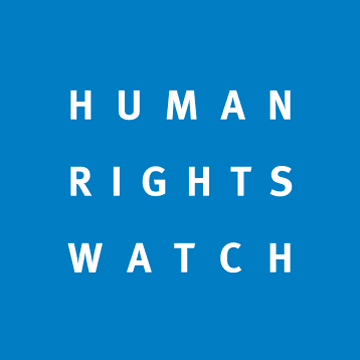Rights Groups Demand Niger Free Activist Moussa Tiangari from Detention
Tiangari was arrested on December 3, 2024, at his home in Niamey, the capital of Niger, by individuals identifying themselves as police officers.

- Country:
- Kenya
Four leading international human rights organizations have called for the immediate release of Moussa Tiangari, a prominent Nigerien civil society leader and human rights defender, who has been held in arbitrary pretrial detention since early January 2025.
In a joint statement, Amnesty International, Human Rights Watch (HRW), the International Federation for Human Rights (FIDH), and the World Organisation Against Torture (OMCT) condemned the Nigerien government’s use of terrorism-related charges against Tiangari, describing his arrest as a blatant attempt to silence dissent and stifle civil liberties.
Arrest and Charges
Tiangari was arrested on December 3, 2024, at his home in Niamey, the capital of Niger, by individuals identifying themselves as police officers. A month later, on January 3, 2025, the Niamey High Court formally charged him with a series of grave offences, including:
-
Criminal conspiracy in connection with a terrorist enterprise
-
Undermining national defence
-
Plotting against the authority of the state through intelligence with enemy powers
If convicted of plotting with enemy powers, he could face the death penalty, a punishment that raises further concerns over the proportionality and fairness of the charges.
Since being charged, Tiangari has been held at Filingué prison, a remote facility approximately 170 kilometers from Niamey, without being presented before a judge to address the substance of the accusations.
Political Context and Motivation
Human rights groups allege that Tiangari’s arrest is politically motivated and stems from his public criticism of the government, particularly regarding its increasing use of security laws to suppress activism and civil liberties.
On November 12, 2024, just weeks before his arrest, Tiangari publicly criticized the Interior Minister’s decision to revoke the licenses of two humanitarian NGOs. He also condemned the establishment of a national terrorism database, warning that it threatened to undermine the rights and freedoms of Niger’s population under the guise of national security.
According to the joint statement, the charges do not relate to any internationally recognized criminal offense and instead target the legitimate exercise of free speech and peaceful activism.
“Moussa Tiangari is being detained solely for the exercise of his human rights. We urge the authorities to immediately release him and drop all charges,” said Marceau Sivieude, Amnesty International’s interim regional director for West and Central Africa.
A Broader Pattern of Repression
Observers note that Tiangari’s detention is not an isolated incident, but part of a broader pattern of repressive tactics employed by the Nigerien authorities against civil society and government critics. In recent years, journalists, opposition figures, and NGO leaders have increasingly faced legal harassment, arbitrary detention, and media restrictions.
“Tiangari’s arrest is part of a wider trend of repression by the Nigerien authorities, who target all those who publicly criticize them, with the aim of silencing them,” said Drissa Traoré, Secretary General of FIDH.
“His arrest and detention send a chilling message to anyone who may dare to criticize Niger’s slide toward autocracy,” added Ilaria Allegrozzi, senior Sahel researcher at Human Rights Watch.
“For decades, Moussa Tiangari has embodied the Nigerien people’s call for democracy, security, resource sovereignty, and independence. Any government that respects the people’s will must release him,” emphasized Isidore Ngueuleu, head of OMCT’s Africa Regional Desk.
Concerns Over Due Process
Human rights advocates have raised serious concerns about the lack of transparency and judicial oversight in Tiangari’s case. Since his arrest and transfer to Filingué prison, there has been no indication that he has been formally interviewed or allowed to present a defense before a competent court.
Moreover, the August 2024 ordinance used to justify some of the charges enables authorities to strip individuals of their nationality if they are suspected of terrorism or crimes against the state—raising the specter of statelessness as a political tool.
Under Niger’s penal code, terrorism-related suspects can be held in preventive detention for up to four years without trial, a policy that has been repeatedly criticized by legal experts and international rights organizations as excessive and vulnerable to abuse.
Calls for Immediate Action
The four human rights organizations have urged the Government of Niger to:
-
Immediately release Moussa Tiangari and drop all charges
-
End the misuse of anti-terror laws to target activists and government critics
-
Guarantee due process and judicial independence
-
Protect the rights to freedom of expression, association, and peaceful protest
The case has drawn international attention amid growing concerns over democratic backsliding and authoritarian governance in parts of West Africa. As Niger continues to grapple with security threats and regional instability, observers warn that turning to repression and intimidation will only further alienate citizens and weaken trust in state institutions.
A Symbol of Resistance
For many Nigeriens, Moussa Tiangari is more than a civil society activist—he is a symbol of democratic resistance and human dignity. His decades-long advocacy for social justice, community development, and accountable governance has made him a respected voice across the Sahel.
Rights groups maintain that his continued detention constitutes an affront to the very principles of democracy that Niger claims to uphold. The pressure is now mounting on the Nigerien government to uphold its international human rights obligations and restore confidence in its commitment to the rule of law.










